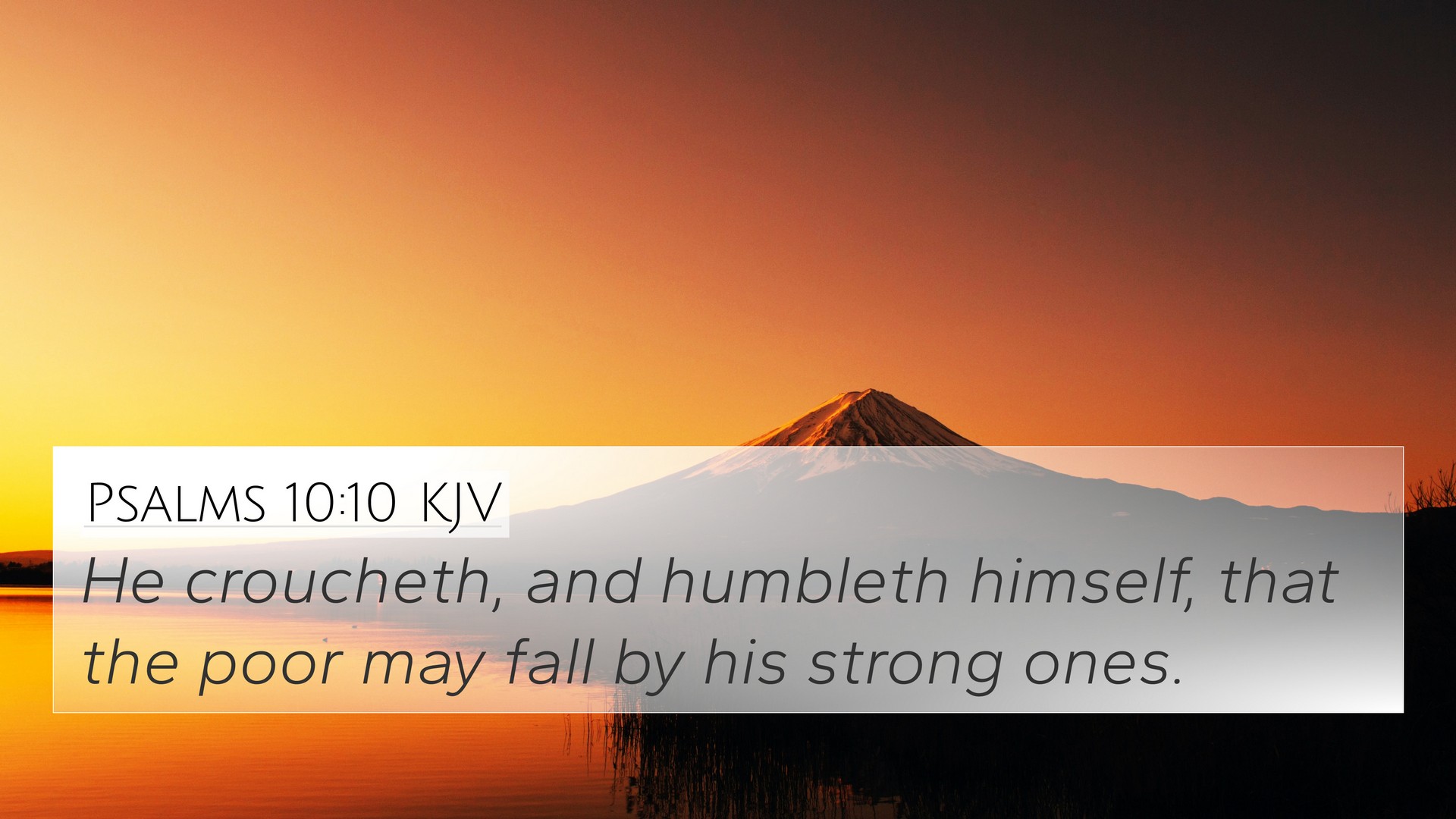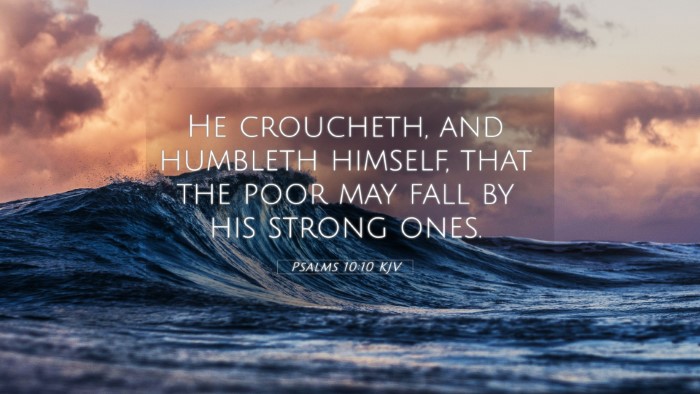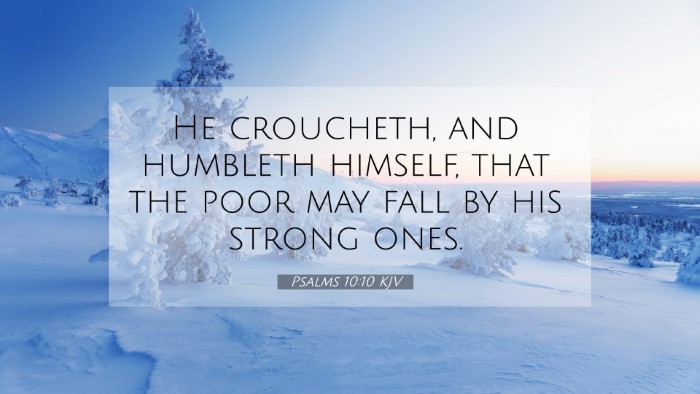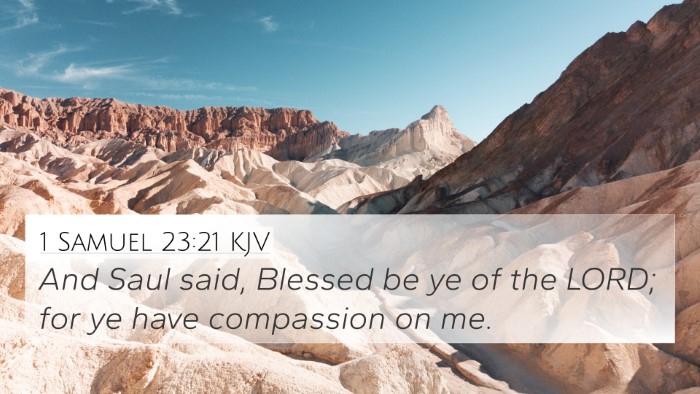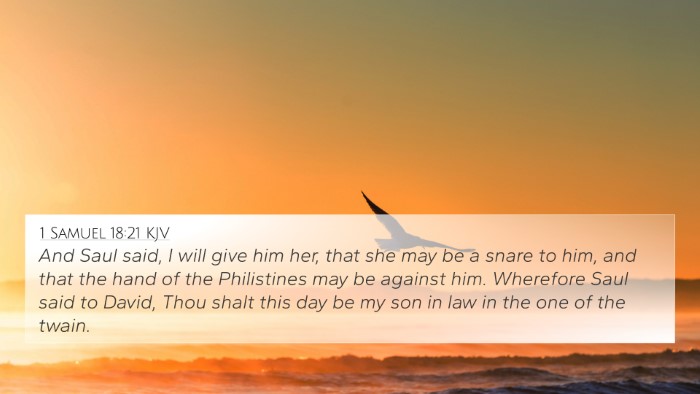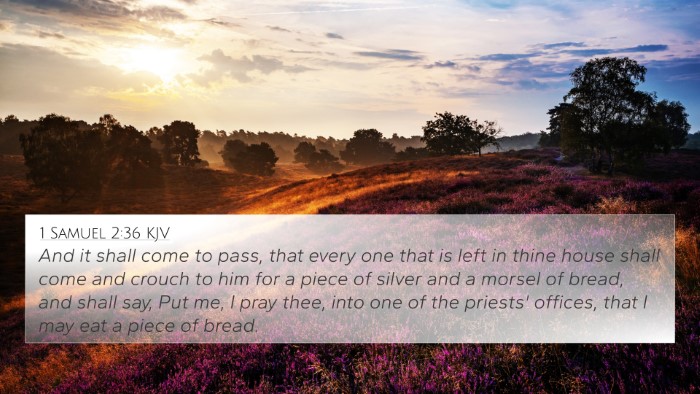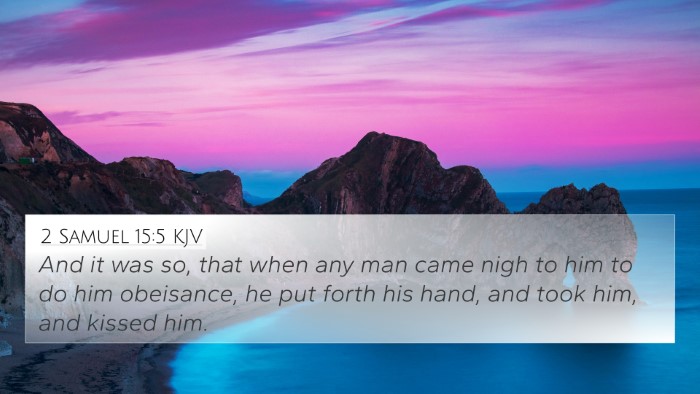Meaning of Psalms 10:10
The verse Psalms 10:10 states: "He crouches and hulks down, and the helpless fall by his might." In this passage, the psalmist vividly describes a scene of oppression and the ruthlessness of the wicked. The imagery evokes the predator and prey dynamic, highlighting the predatory nature of the wicked and the vulnerability of the innocent.
Interpretation Insights
Insights extracted from noted public domain commentaries provide deeper understanding:
-
Matthew Henry:
Henry remarks that this verse reflects the posture of the wicked: they act with ferocity and malicious intent, demonstrating how they prey upon the weak and defenseless. He explains that their cruelty is akin to a wild animal, emphasizing moral chaos when injustice reigns.
-
Albert Barnes:
Barnes emphasizes the helplessness of those who fall into the hands of the wicked. He brings attention to the stark contrast between the might of the oppressor and the frailty of the oppressed. Barnes underscores the divine justice that may eventually restore balance and punishment for the oppressive.
-
Adam Clarke:
Clarke elaborates on the cultural context, explaining that the depiction of the crouching figure indicates premeditated action against the innocent. He notes that this could symbolize the strategies of the ungodly who exploit every opportunity at the expense of righteousness.
Cross-References
This verse resonates with several other biblical texts that explore themes of wickedness, oppression, and divine justice. Here are some pertinent cross-references:
- Psalms 37:32-33 - "The wicked watches for the righteous and seeks to slay him." This parallels the theme of wickedness targeting the innocent.
- Proverbs 21:15 - "It is a joy to do righteousness, but ruin to the workers of iniquity." Highlights the contrast between righteous actions and wicked schemes.
- Isaiah 35:4 - "Say to those who have an anxious heart, 'Be strong; fear not! Behold, your God will come with vengeance.'" This shows God’s promise to intervene against the oppressive.
- Micah 7:2 - "The godly has perished from the earth, and there is no one upright among mankind; they all lie in wait for blood." This connects with the notion of pervasive evil and its consequences.
- Romans 12:19 - "Vengeance is mine, says the Lord; I will repay." This reveals that while the wicked may seem strong, ultimate justice belongs to God.
- Ephesians 6:12 - "For we do not wrestle against flesh and blood, but against principalities and powers." A reminder that the battle against wickedness often has spiritual dimensions.
- Jeremiah 22:3 - "Thus says the Lord: Do justice and righteousness, and deliver from the hand of the oppressor." This emphasizes the call for justice against oppression.
Thematic Connections
The themes of oppression, divine justice, and human vulnerability form a backbone of scriptural narratives across both the Old and New Testaments. Understanding these connections enriches one's study:
- Justice and Righteousness: Many verses, like Amos 5:24, urge for justice to roll down like waters. This theme permeates the fabric of scripture.
- God's Protection: Psalm 34:19 states that "many are the afflictions of the righteous," implying God’s presence even amidst oppression.
- Vengeance belongs to God: Romans 12 contemplates this notion, reiterating the trust that God will handle injustices accordingly.
- Human Vulnerability: Several references, such as Psalm 72:12-14, highlight the need to safeguard the vulnerable.
Conclusion
Psalms 10:10 presents a powerful allegory of wickedness targeting the helpless, inviting readers to reflect on instances of injustice in life and the assurance of divine retribution. The combined insights from established commentaries and thematic cross-references provide a holistic view of this verse's implications in theological studies, scriptural cross-referencing, and understanding God's justice.
Further Study
When engaging with this verse and its connections, consider utilizing tools for Bible cross-referencing such as a Bible concordance or a comprehensive Bible cross-reference guide. These resources can aid in discovering deeper connections and enhancing your understanding of linking Bible scriptures effectively.
